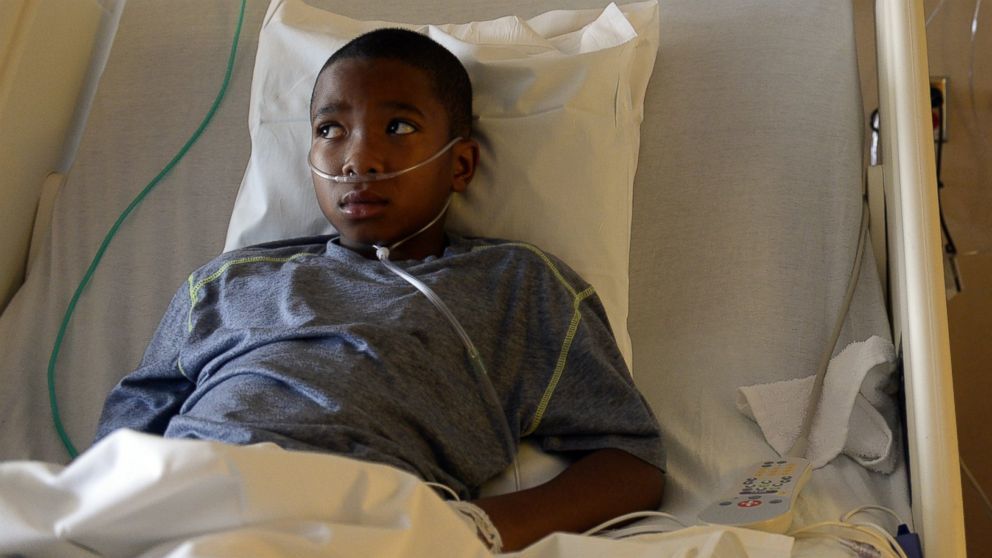Tag Archives for " Temporary Paralysis "
Temporary Paralysis and Other Things You Need to Know About Enterovirus
————————————————————————————————————————–
There is still a mystery surrounding Enterovirus cases spreading around the country. Now the CDC is investigating possible connections between the virus and temporary paralysis. Although its symptoms are similar to the common cold, its rapid progression and severity makes it very different — with many cases ending up in Intensive Care. Hundreds are hospitalized in 11 states, at higher risk are children with asthma.
Here are some important things you should know:
• Highly contagious, spreadable by cough or sneeze, and also can live on surfaces. But full knowledge of how is spreads is unknown due to lack of scientific studies on the virus.
• Starts like common cold; Runny Nose, Coughing, sneezing and fever
• Progresses rapidly; difficulty breathing, possible loss of consciousness (look for wheezing, shortness of breath or difficulty speaking)
Apparently this isn’t the first case of an outbreak of Enterovirus (EV-D68). According to a 2011 CDC report, from 2008 to 2010 there were clusters of Acute Respiratory Illness associated with EV-D68 across multiple continents including Asia, Europe and the United States. While it’s not the first time however, health officials are scratching their heads as to why it has reemerged… and with such voracity.
Particularly alarming is the lack of specific treatment for the virus and its, now possible, connection to acute onset of focal limb weakness — or temporary paralysis. Instead, health officials are tasked with treating the symptoms of the infection, often requiring hospitalization.
For the most current information on the virus, and to find out what is being done about it, visit the CDC website.
The CDC has a specific link for Healthcare Professionals on Evaluating, Reporting, Testing and Infection Control Recommendations here.
Special Center for Disease Control Health Alert Network Advisory — Link Between Enterovirus 68 and Paralysis
Occasionally, we will have special announcements of current health issues that we feel everyone should know about, and we do our best to deliver as much information we can about them. In this case, it is the alarming rise in cases of Enterovirus nation-wide, and concerns both health officials and the Centers for Disease Control (CDC) have about this mysterious illness. Over the next few weeks we will be following this developing story and provide links to as much information on its spread, known symptoms, and what health and CDC officials recommend the public can do to guard against it.
On September 26, 2014, the CDC issued an Official Health Alert Network (HAN) Advisory, Acute Neurologic Illness with Focal Limb Weakness of Unknown Etiology in Children. The HAN’s purpose is to spread awareness of the neurologic syndrome and to help determine its geographic spread.
Currently, the CDC is investigating nine cases of the acute neurologic illness among pediatric patients, among the ages of 1-18 years.
According to the report, “Common features included acute focal limb weakness and specific findings on magnetic resonance imaging (MRI) of the spinal cord consisting of non-enhancing lesions largely restricted to the gray matter. In most cases, these lesions spanned more than one level of the spinal cord. Some also had acute cranial nerve dysfunction with correlating non-enhancing brainstem lesions on MRI. None of the children experienced altered mental status or seizures. None had any cortical, subcortical, basal ganglia, or thalamic lesions on MRI. Most children reported a febrile respiratory illness in the two weeks preceding development of neurologic symptoms. In most cases, cerebrospinal fluid (CSF) analyses demonstrated mild-moderate pleocytosis (increased cell count in the CSF) consistent with an inflammatory or infectious process. CSF testing to date has been negative for West Nile virus and enteroviruses, including poliovirus.”
The United States is currently experiencing a nationwide outbreak of EV-D68 associated with severe respiratory disease.
The CDC lists a number of recommendations and provides contact information to report suspected cases:
“Recommendations
- Patients who meet the following case definition should be reported to state and local health departments:
Patients ≤21 years of age with
- Acute onset of focal limb weakness occurring on or after August 1, 2014;
AND
- An MRI showing a spinal cord lesion largely restricted to gray matter.
- State and local health departments should report patients meeting the case definition to CDC using a brief patient summary form (www.cdc.gov/non-polio-enterovirus/investigation/). State health departments should send completed summary forms to CDC by email at limbweakness@cdc.gov.
- Providers treating patients meeting the above case definition should consult with their local and state health department for laboratory testing of stool, respiratory, and cerebrospinal fluid specimens for enteroviruses, West Nile virus, and other known infectious etiologies.
- Health departments may contact CDC for further laboratory and epidemiologic support by phone through the CDC Emergency Operations Center (770-488-7100), or by email at limbweakness@cdc.gov. Confirmation of the presence of EV-D68 currently requires typing by molecular sequencing.”


